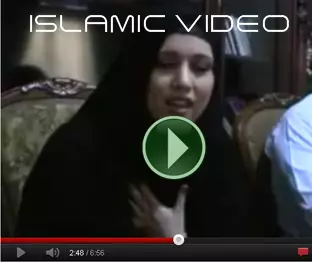The future of Islamic intellectualism in Indonesia
In a show of force, members of the Islam Defenders Front (FPI) broke up a book launch and discussion featuring Canadian Muslim feminist Irshad Manji at the Salihara Cultural Center in Jakarta on May 5. It was said that the FPI accused Manji of violating a primary tenet of Islam by promoting homosexuality.
Viewing the incident in a bigger picture, the unjustified action is linked to a series of efforts initiated by Muslim hard-liners in the last few decades to circumscribe and restrict the intellectual activities focusing on Islamic matters.
It is not an atypical case that these vigilantes would exert physical force and violence to intimidate or dissolve public discussions, seminars, lectures and book launches. The situation is, of course, unfriendly to any intellectual and academic activity.
The 2005 Indonesian Ulema Council’s (MUI) edict prohibiting secularism, liberalism and pluralism has been widely used by the hard-line groups to justify unlawful actions.
Regardless of the diverse philosophical understandings and political implications, the edict narrow-mindedly defined those “-isms” as potentially corroding the holy and sacred essence of Islam. Put simply, the edict itself epitomises this anti-intellectualism, which clearly violates the freedom of religion and freedom of speech, the primary features of a democratic society.
Surprisingly, these intolerant efforts seem to gain lots of sympathy from the wider Indonesian Muslim community. The general but ahistorical attitude embraced by the majority of Muslims to treat Islam
as a final, fixed and single entity since it was revealed to the Prophet Muhammad 14 centuries ago is
considered the major cause of this predisposition.
It supposes that any action accounted for a violation of the basic tenets of Islam should be automatically banned.
On the contrary, any action in the name of Islam, though convincingly conducted against the law and/or violently attacking the rights of others, is likely to be permitted.
It can be exemplified by the different fates of the FPI and the Liberal Islamic Network (JIL). The two are now a binary icon depicting the conservative and the progressive groups fighting against each other in the contemporary Indonesian Muslim community.
The FPI has been blamed for numerous unlawful and violent attacks and public intimidation against people or things defined as un-Islamic or the enemy of Islam, while the JIL has been accused by the public as a trouble-maker through its dissemination of controversial ideas questioning Islam as the perfect way of life.
The fate of the two groups can be examined on the basis of two public movements against them spread earlier this year, Indonesia Tanpa FPI (Indonesia without FPI) and Indonesia Tanpa JIL (Indonesia without JIL).
The former was fading away as quickly as the latter emerged and gained massive support from the majority of Indonesian Muslims. Despite the fact that members of the JIL have never been charged with any crimes or unlawful actions, numerous mass rallies and cyber campaigns were launched against them.
It is suffice to say that the fact illustrates the recent domination of religious conservatism, which undoubtedly would restrain the development of Islamic intellectualism in Indonesia.
The attempts to reform and revitalize such obsolete Islamic doctrines in accordance with the religious plurality and societal modernity of Indonesia would easily be deemed as an act of heresy.
The efforts to repress religious intellectualism are not a new phenomenon. Hinted in his 2011 book, Cosmopolitans and Heretics, Carool Kersten examined the life and work of Nurcholish Madjid, popularly known as Cak Nur, one of the most prominent progressive Muslim scholars ever born in this country, who died in 2005.
Together with Egyptian Hasan Hanafi and French-Algerian Mohamed Arkoun, Cak Nur embraced a cosmopolitan worldview and advocated religious tolerance and pluralism in Indonesia. Without doubt, he re-interpreted verses of the Koran and Hadith to be contextualised in the unique-cum-pluralistic cultures of this country.
Unfortunately, this act saw him defined as a heretic by other Indonesian Muslim scholars.
Related to the violent interruptions targeting Manji’s public discussion, the challenge against Islamic intellectualism seems to be getting worse.
A witch-hunt-like operation perpetuated by FPI members has sent a clear signal of a dark future for Islamic intellectual activities.
There are at least two major obstacles undermining Muslim intellectualism: The lack of political will and the inability of public officials to preserve the freedom of religion and free speech; and the silence of the majority — moderate Muslims — toward intolerant and violent actions perpetuated by Muslim thugs.
Aside from the impotency of the government to act against groups of Islamic vigilantes, which is widely highlighted by printed and digital media, the fact that the majority of Muslims were silent must be paid more attention.
Here, Manji was correct. As she persuasively delineated in her first book, the trouble with today’s Muslim community is the unwillingness of the majority, who are religiously moderate, to take action against repressive, intolerant and violent activities in the name of the holiness of their religion.
The majority of Muslims are the true owner of Islam and relatively free from any political and economic motives embracing this peaceful religion. But because adhering to a religion is always demanding unreserved obedience to religious rules and leaders, their disagreement with the unjustified actions carried out in the name of Islam could be easily muted.
In short, while we may lose hope in the current regime tackling the current intolerant and repressive actions campaigned by Muslim thugs, we have to approach the majority of moderate Muslims to stand up against them.
Only by winning the hearts and minds of the majority will we envisage religiously tolerant environment of exuberance for Islamic intellectualism.
SOURCE:The Jakarta Post














